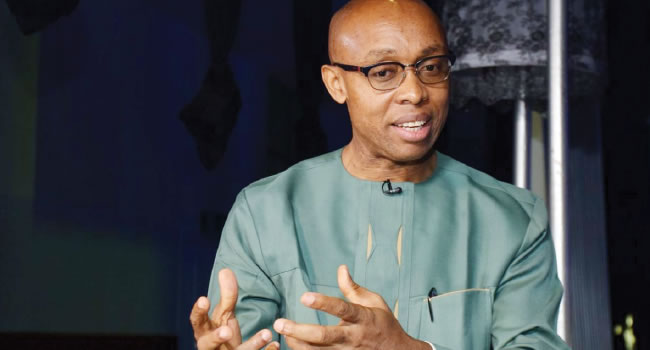The Benue State government has vehemently condemned recent remarks by Professor Chidi Odinkalu, former Chairman of the National Human Rights Commission, labeling his statements as deeply insensitive and lacking empathy for the victims of ongoing attacks in the state. The government’s response, delivered through a statement issued by Governor Hyacinth Alia’s Chief Press Secretary, Sir Tersoo Kula, accused Odinkalu of engaging in performative critique rather than offering constructive solutions to the pressing security challenges facing the state. Kula emphasized the gravity of the situation, describing Benue, traditionally known as the “Food Basket of the Nation,” as “awfully bleeding” from the wounds inflicted by persistent attacks attributed to armed herders, resulting in numerous fatalities and widespread displacement.
The core of the disagreement stems from Odinkalu’s public criticism of Governor Alia’s assertion that the perpetrators of the recent massacres are “Hausa-speaking mercenaries from Mali.” Odinkalu, via his social media platform, questioned the geographical and linguistic plausibility of this claim, pointing out the prevalence of Bambara, Songhai, and Malinke languages in Mali, and suggesting that Hausa speakers are more likely to originate from Niger. He further called for the governor, a Catholic priest, to “return to the seminary or seek re-education,” a statement deemed particularly offensive by the Benue State government. Kula defended Governor Alia’s statements, asserting that the governor has consistently identified the involvement of criminal elements among Fulani herdsmen who, he claims, are hiring mercenaries to facilitate land grabs, while carefully avoiding generalizations and ethnic stereotyping.
The Benue State government, through Kula’s statement, emphasized the importance of unity and empathy in addressing the crisis. They argued that the focus should remain on providing support to the victims and finding solutions to the violence, regardless of the perpetrators’ origins. They stressed that whether the attackers are from Mali, Niger, or elsewhere, the priority should be on alleviating the suffering of the Benue people and bringing an end to the violence. This call for a unified front against the violence implicitly criticizes Odinkalu’s statements as divisive and unhelpful to the overall goal of peace and security in the region.
Odinkalu, however, doubled down on his criticism in subsequent social media posts, accusing Governor Alia of demonstrating a lack of both the will and the ability to address the crisis. He referenced an incident in Ukum Local Government Area where the governor’s convoy was reportedly stoned by residents frustrated with the government’s perceived inaction. Odinkalu argued that instead of taking responsibility for the security failings, the governor resorted to inventing “phantom perpetrators.” He further highlighted the timing of the governor’s response, coinciding with the funeral of the Pope, suggesting that Governor Alia, himself a Catholic priest, prioritized responding to criticism over mourning the pontiff.
Odinkalu’s continued critique extended to questioning Governor Alia’s qualifications for both his political office and his priestly vocation. He suggested that if the governor is unwilling to re-examine his approach to the crisis, he should consider his fitness for governorship. He went even further, asserting that the governor’s handling of the situation casts doubt on his suitability for the priesthood, a deeply personal attack that further escalates the tension between the two figures. This direct challenge to Governor Alia’s moral authority underscores the depth of Odinkalu’s disapproval of the governor’s leadership and crisis management.
The exchange between Professor Odinkalu and the Benue State government highlights the complex dynamics surrounding the ongoing violence in the region. While the government emphasizes the need for unity and a focus on solutions, Odinkalu criticizes what he sees as the governor’s inadequate response and attempts to deflect responsibility. The disagreement over the identity of the perpetrators, while seemingly a point of factual contention, also reveals deeper disagreements about the underlying causes of the conflict and the best approach to resolving it. The public nature of this dispute, playing out on social media, further complicates the situation and risks exacerbating tensions in an already volatile environment. The core issue remains the ongoing violence and displacement in Benue State, and the urgent need for effective action to protect the lives and livelihoods of its citizens, irrespective of the ongoing war of words.














